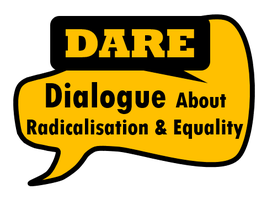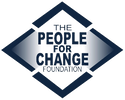Dialogue about Radicalisation and Equality

- Project start date: 01 May 2017
- Duration: 48 months
- Project Funder: European Commission Horizon 2020
- Lead Partner: University of Manchester (United Kingdom)
Project Partners: Hogskolen i Oslo og Akershus (Norway); Ecole des Hautes Etudes en Sciences Sociales (France); Centre National de la Recherche Scientifique (France); Anadolu University (Turkey); Koehler Daniel (Germany); University Leiden (The Netherlands); Fachhochschule Dusseldorf (Germany); Teesside University (UK); Collegium Civitas (Poland); Panteio Panepistimio Koinonikon Kaipolitikon Epistimon (Greece); National Research University Higher School of Economics (Russia); Institute Drustvenih Znanosti Ivo Pilar (Crotia); European Network Against Racism (Belgium); People for Change Foundation (Malta); and Sfax University (Tunisia).
About the Project
DARE aims to significantly enhance our understanding of why and how young people become radicalised, that is adopt radical ideologies with the potential for violent action . It does so through conceptual innovation and refinement based on new empirical research on young people’s encounters with messages and agents of radicalisation, their receptivity and responses to them and the paths they subsequently take.
The over-arching question behind the project is: Why and how do young people become, or not become radicalised (engaged in violent extremist ideologies and behaviours)? To do this, the project brings together a cross-disciplinary team of researchers and practitioners to study the radicalisation pyramid from the “base”, recognising that the outcome of radicalisation is dramatic, life-changing and life-threatening. The project will generate high quality empirical data that will significantly improve our understanding of the scope, origins, causes and psychological, emotional and social dynamics of radicalisation – enhancing policy and practice in the field of radicalisation. It recognises that improving knowledge on radicalisation has urgent implications for societal security. DARE’s primary concern is thus to address the long term social roots and effects of radicalisation and to engage young people themselves in countering radicalisation through its innovative attention to non-radicalisation alongside radicalisation trajectories.
The concept and approach of the DARE project is embedded in its focus on:
- Young people (broadly defined as those between 12 and 30 years of age);
- Islamist and anti-Islam(ist) radicalisation (as manifestations of contemporary, and potentially cumulatively interacting, forms of radicalisation);
- Dialogue about radicalisation and equality (as a means for enhancing young people’s capacity to counter radicalisation and promote non-radicalisation choices).
Aims and Objectives
The aim of the DARE project is to deepen and broaden our scientific understanding of why and how young people become radicalised. The project also seeks to demonstrate that radicalisation is not located exclusively in any one religion, community or demographic. Through its focus on Islamist and anti-Islam(ist) radicalisations, it explores how radicalisation processes interact and may have cumulative effects in society.
The specific objectives are:
- To understand radicalisation trends in historical, spatial and political context including their interaction and potential for cumulative effect;
- To identify new trends in receptivity to radicalisation especially in relation to youth and gender and extend the field to the study of non-radicalisation trajectories;
- To investigate the interaction of structure and agency in radicalisation through the intersection of societal (macro), group (meso) and individual (micro) factors in individual trajectories;
- To enhance understanding of the role of inequality and perceived injustice in radicalisation;
- To understand the relative significance of religion, ideology and affective dimensions of radicalisation and how they are interwoven;
- To develop new evaluation and intervention toolkits to counter radicalisation and maximise impact thereof through active collaboration with policy makers and civil society stakeholders.
Background
The DARE project recognizes the importance of social inequality and discrimination in giving rise to a sense of grievance and perceived injustice, which motivate engagement with radical ideologies and actions. Recognising radicalisation to be a social phenomenon requiring urgent and serious attention given its significance for societal security is crucial, and DARE’s particular concern deals with the social origins and effects of radicalisation. DARE starts from the premise that the interaction between political and cultural context and an individual’s cognitive development is pivotal to understanding the radicalisation process and the pathways leading individuals toward extremist behaviour. It captures this interaction through a focus on radical milieu (e.g. ethnic, religious, or political) – social formations through which collective identities and solidarities are constructed. This project provides unique insights as this is rarely the focus of empirical study and often gets overlooked in research on radicalisation. DARE sees the future of radicalisation studies not in profiling the individual and his/her presumed associated qualities but understanding the process and meaning of engagement with radicalisation for the individual in historical, socio-cultural and political context.
The People for Change Foundation’s Role
The People for Change Foundation (PfC) is the national project partner responsible for conducting the project activities in Malta. In particular PfC will:
- Undertake research on forms of radicalisation in Malta including anti-islamic radicalisation
- Hold a number of focus group discussions about radicalisation in Malta
- Develop educational toolkits about the themes of the project (co-leading the work package)
- Host the mid-term Consortium Meeting and Policy Forum
- Develop and support the project’s continuation, dissemination and impact plans
- Work with relevant stakeholders in Malta to ensure a greater awareness of the project’s results.
- Manage the project’s website and online presence

This Project is funded by the European Union

